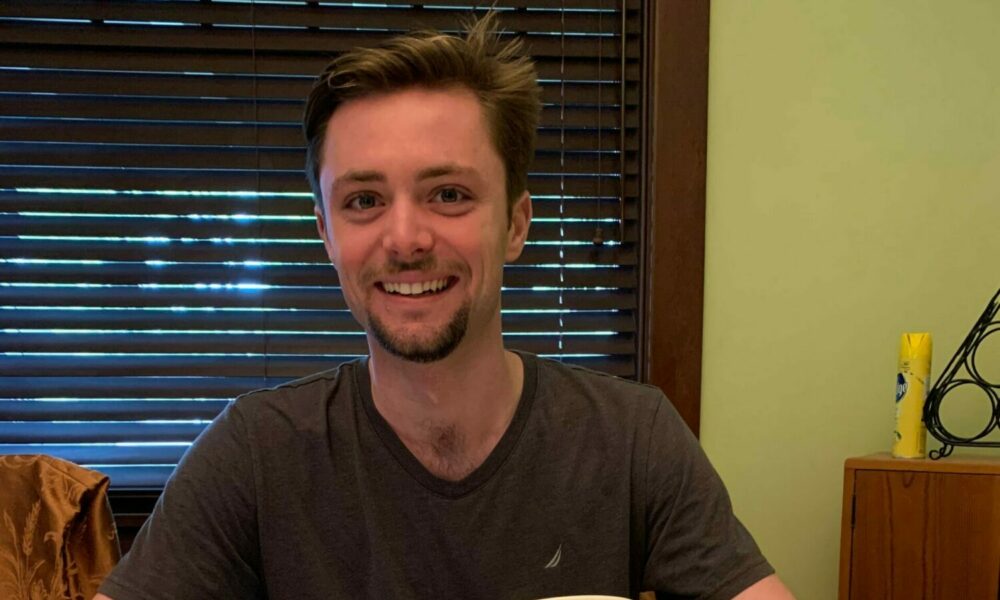

Today we’d like to introduce you to Karl Grant.
Thank you so much for sharing your story and insight with our readers. To kick things off, how did you get started?
The chess social began unintentionally. While in college, I devoted myself to improving at chess. This was because my beloved brother had moved away to college himself, far away in Santa Cruz. While there, he made new friends and started to play more chess. To remain close to my brother, I started playing with anyone willing. Unfortunately 2017, LA did not have nearly any active chess clubs. After going to the Pasadena Chess Club, I was surprised to learn that the members comprised two retired men. I decided to build up a small community of chess players. Luckily, I worked in a traditional Irish pub with a secretive speakeasy-like basement. After begging and pleading, the owner reluctantly let us use this venue space for our weekly chess meets. Soon after, people took notice and started coming regularly. It was only when my peer and good friend, Christian Bhagwani (a jazz student at the same university), asked if he could practice his music down there simultaneously. We happily agreed. It became immediately obvious that the music was an incredible addition to the experience. Soon after, his band became a regular part of the evening. More members joined, other bands asked to perform, and other venues offered us a chance to host our event with them. Within the first year, we held 60 events, with an average of 40 people coming to each event and a lineup of 4 to 5 live music acts performing for each event. The growth and enthusiasm were staggering, leaving us today as California’s largest informal chess club. We also inspired others to start their clubs, as LA now boasts about a dozen active clubs, with a chess club available each day of the week.
Would it have been a smooth road, and if not, what are some of the biggest challenges you’ve faced along the way?
There were many struggles along the way. When I quit my job at Griffins of Kinsale (the Irish pub that we started at) to focus on school, it was unclear if we could find another place to book live music and take over an area of the venue without charging us. As we did not charge people to attend the events, I only had enough money to pay for the bands. Eventually, we decided it was necessary to implement a “suggested donation” to pay the bands more fairly and cover other club expenses. Then, COVID-19 hit, and we had to stop holding our events. I was bummed during covid, as I began to lose more and more faith that people would still be interested in an in-person chess scene after the fact. Luckily, Covid ushered in the “Chess Renaissance,” as many chess organizers call it. Confined, scores of chess players emerged online. The popularity of The Queen’s Gambit, a Netflix show, reminded people of the chess golden age and the game’s romantic nature. It also greatly undermined the gender inequity in chess play, which was incredible! There has historically been much sexism in chess, which I believe the show beautifully exposed and critiqued.
Let’s switch gears a bit and talk business. What should we know about your work?
I am very interested in philosophy, history, and psychology. I started the chess social in 2017 at 21 years old and just graduated this past spring with three bachelor’s degrees. I currently work as a child psychologist, helping children on the autism spectrum develop and practice social skills. I am also working with my local school district to start a youth chess program. I am particularly proud of the Chess Social and what it has grown into, with over 390 events under our belt. My hobbies include frisbee, sailing, swimming, billiards, and reading dry continental philosophy tomes.
What changes are you expecting over the next 5-10 years?
The LA chess scene will likely continue to grow, with more and more clubs opening their doors. I am worried that there will be considerable moves from large chess companies to consolidate chess play under their domain. With nearly unlimited budgets, companies like chess.com can effectively take over the chess scene, undermining the community-building benefits of grassroots chess clubs. I am also worried about similarly large conglomerates consolidating chess education into an “Uber-style” platform, which will hurt those small chess education firms, leading to fewer chess educators being able to support themselves in this way. For example, one huge chess education platform is aggressively expanding, charging $60 per student in fifteen classes, only to pay the educator $25 per hour (for those two-hour classes). That, to me, is unfair.
Contact Info:
- Website: https://www.chesssocial.org
- Instagram: https://www.instagram.com/chess_social/
- Facebook: https://www.facebook.com/lachesssocial/
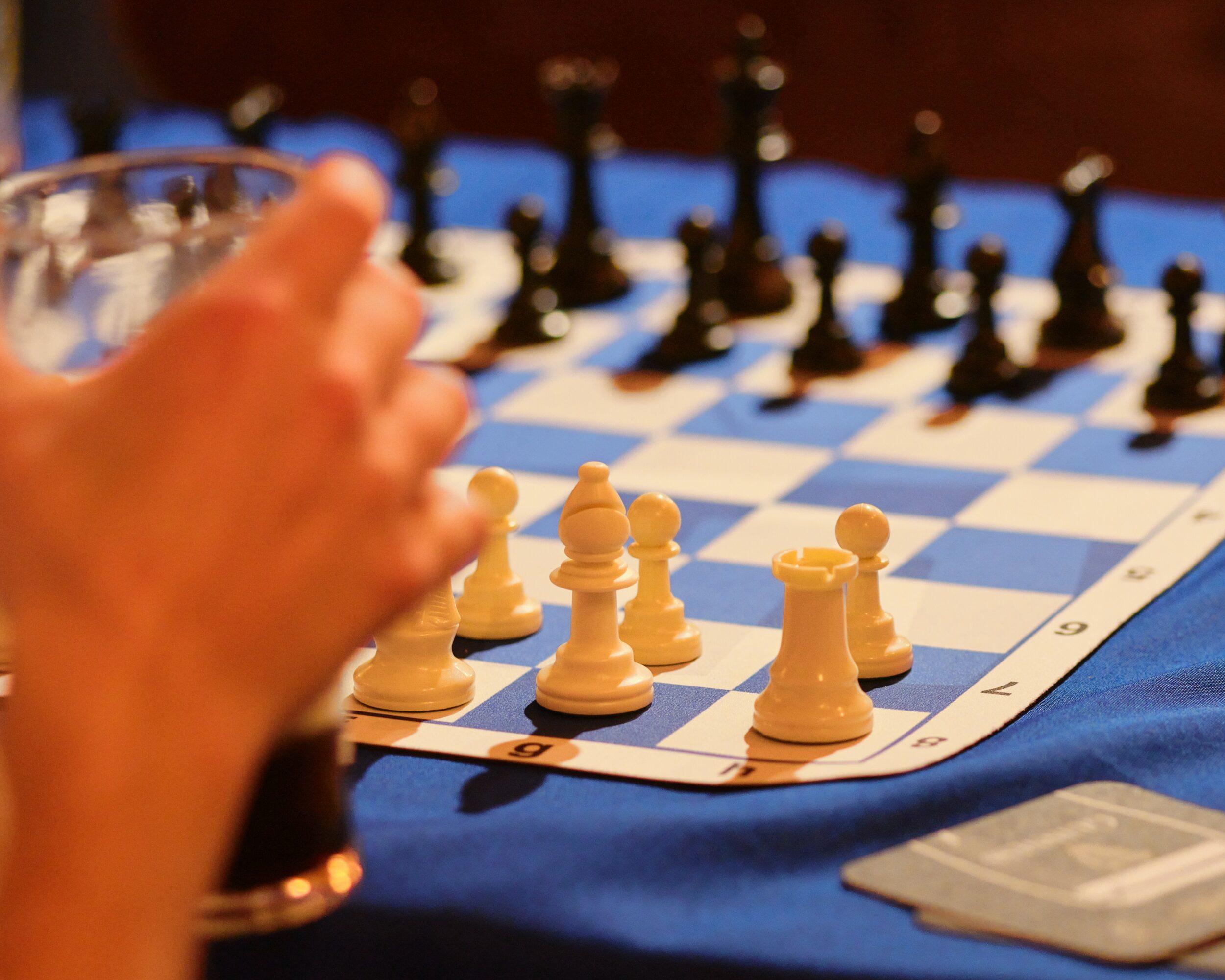
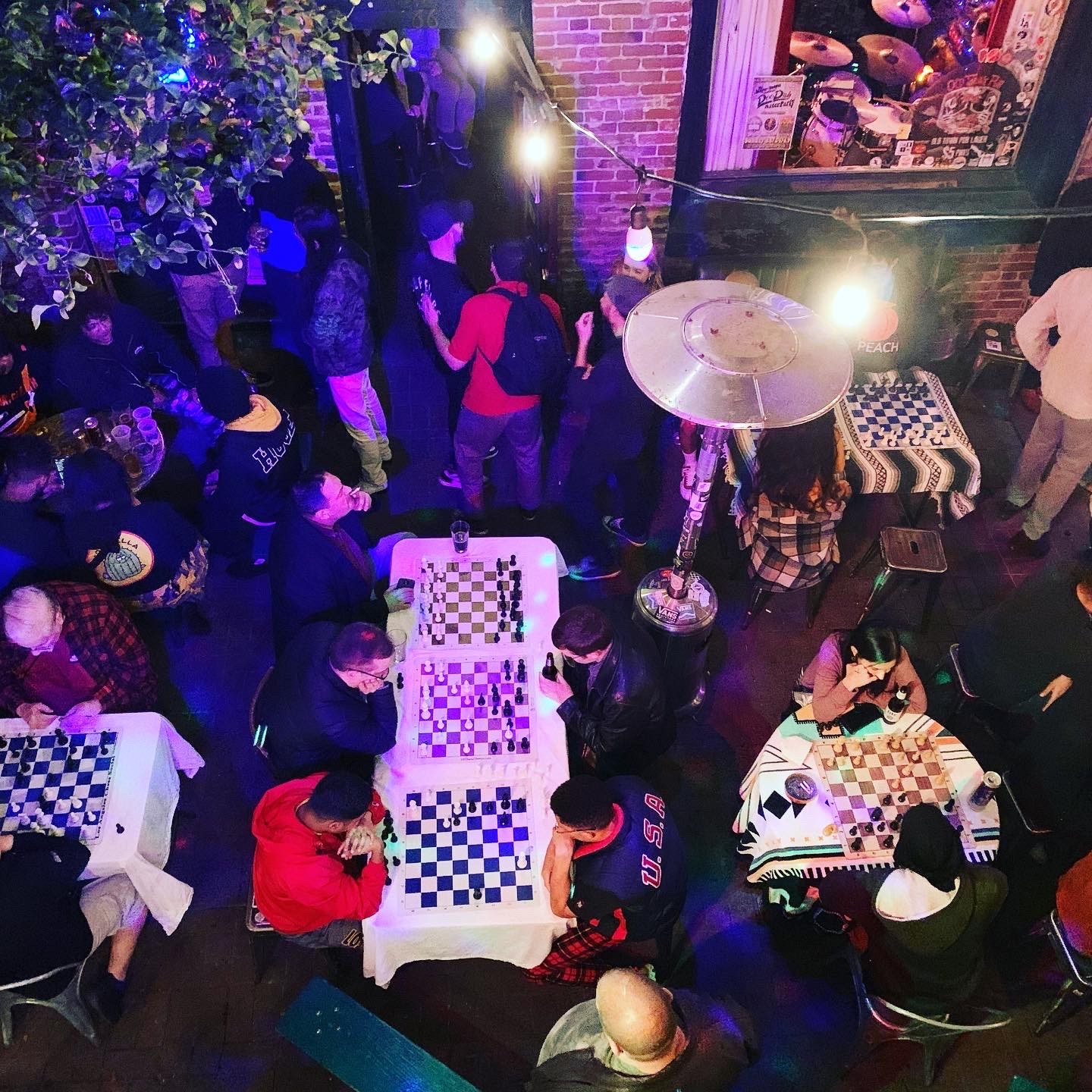
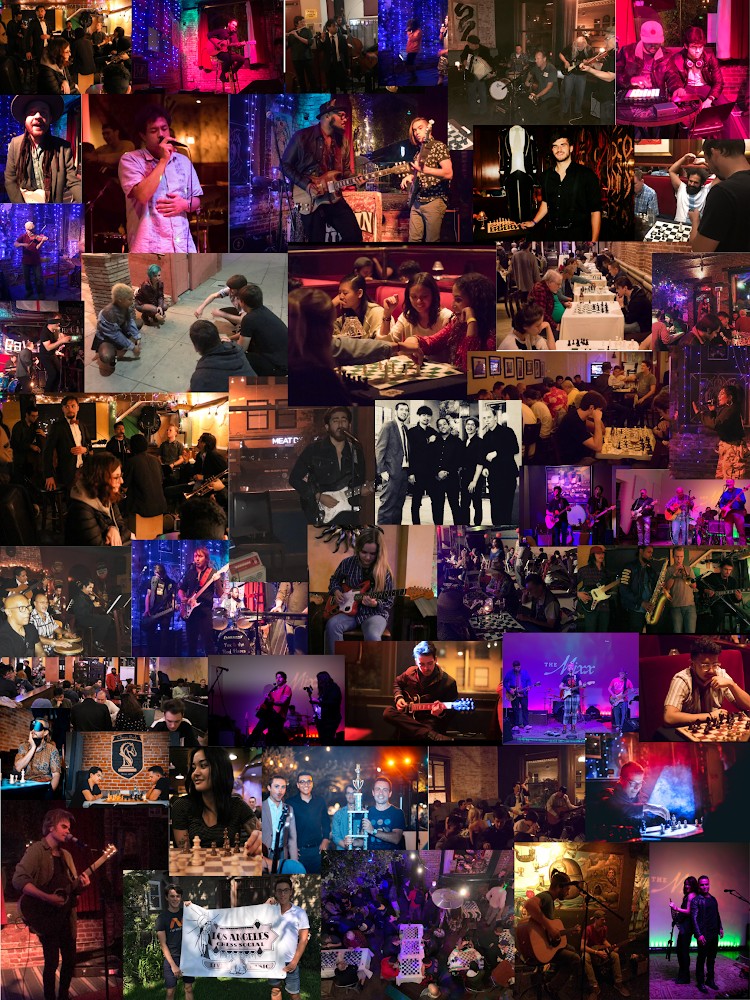
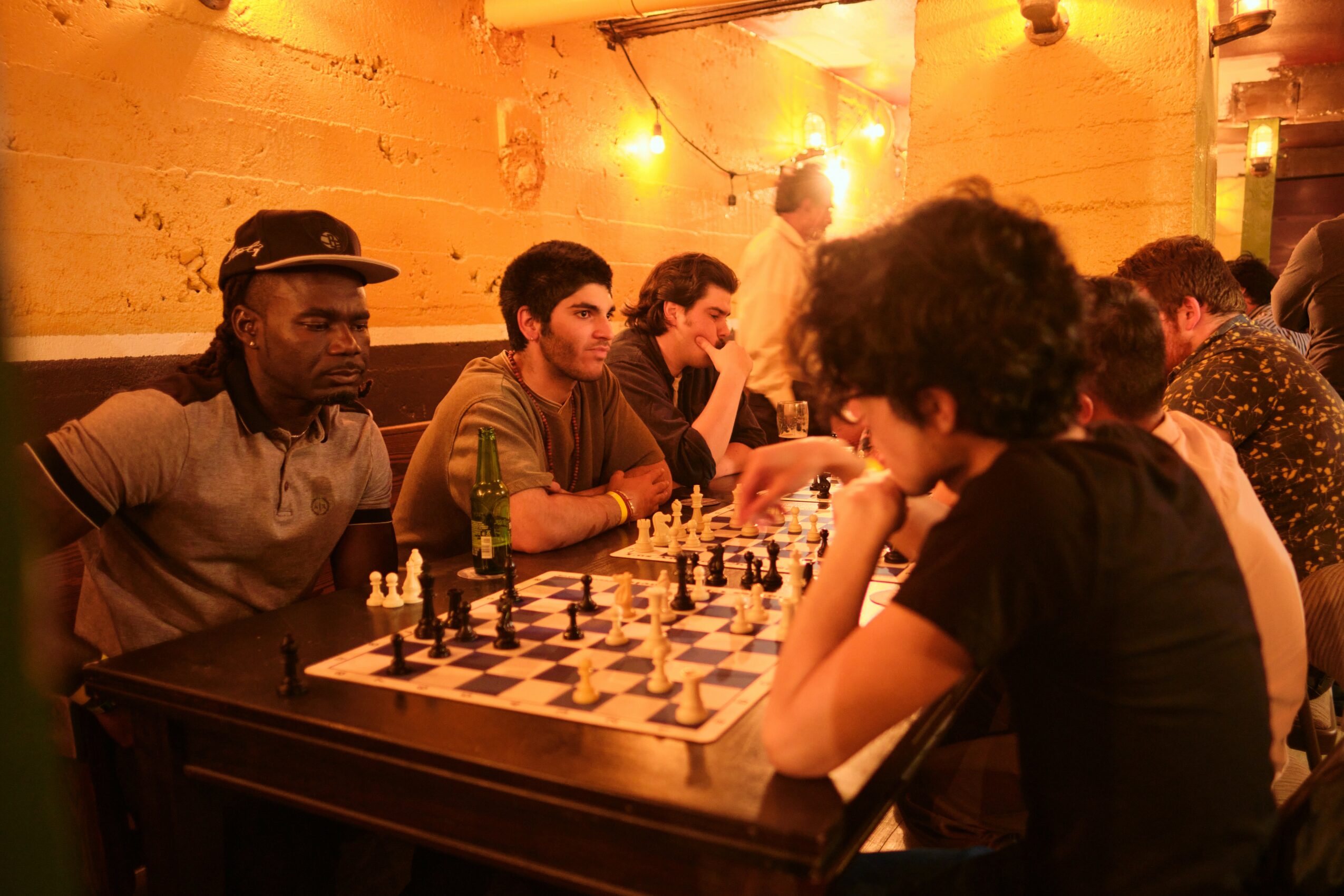
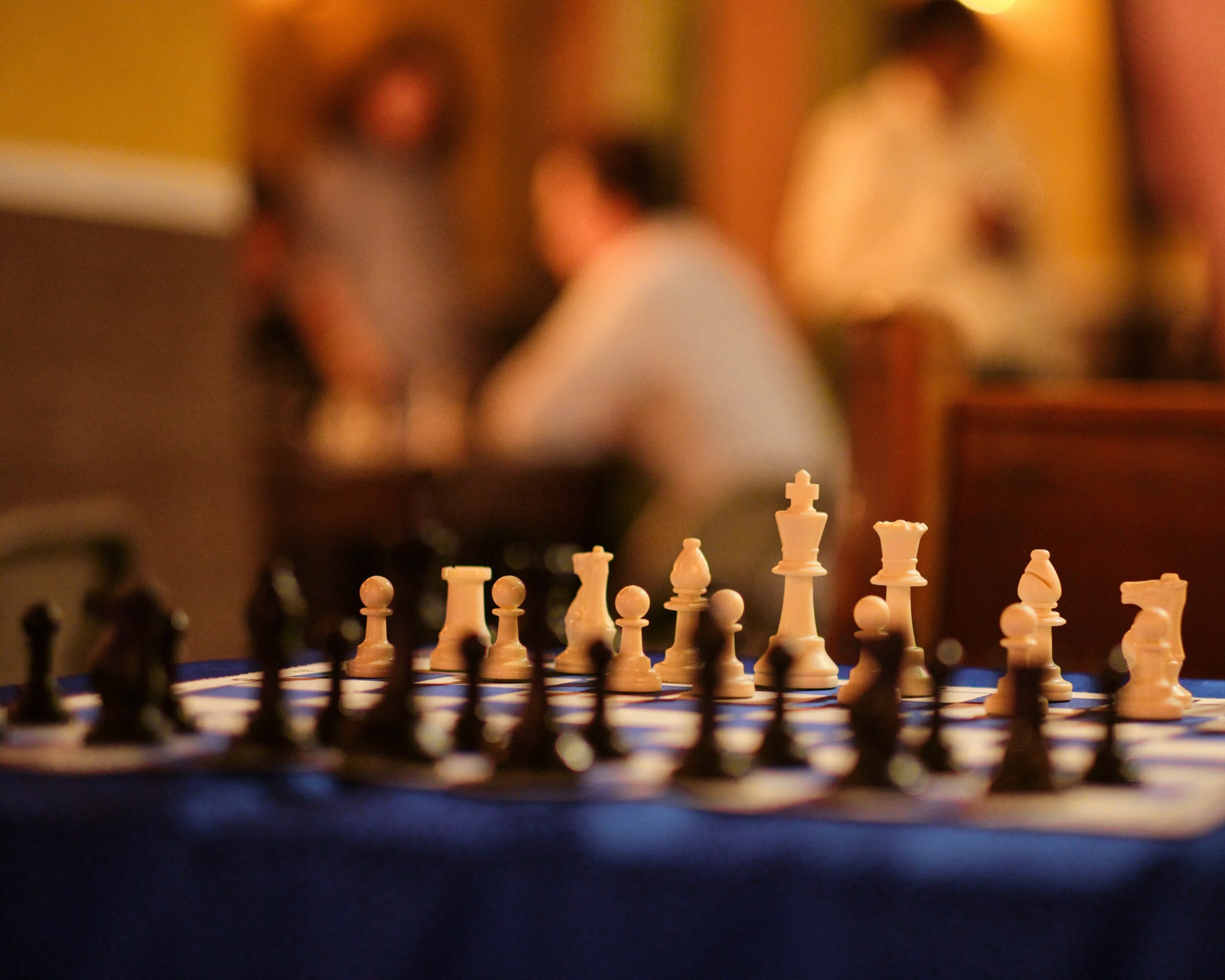
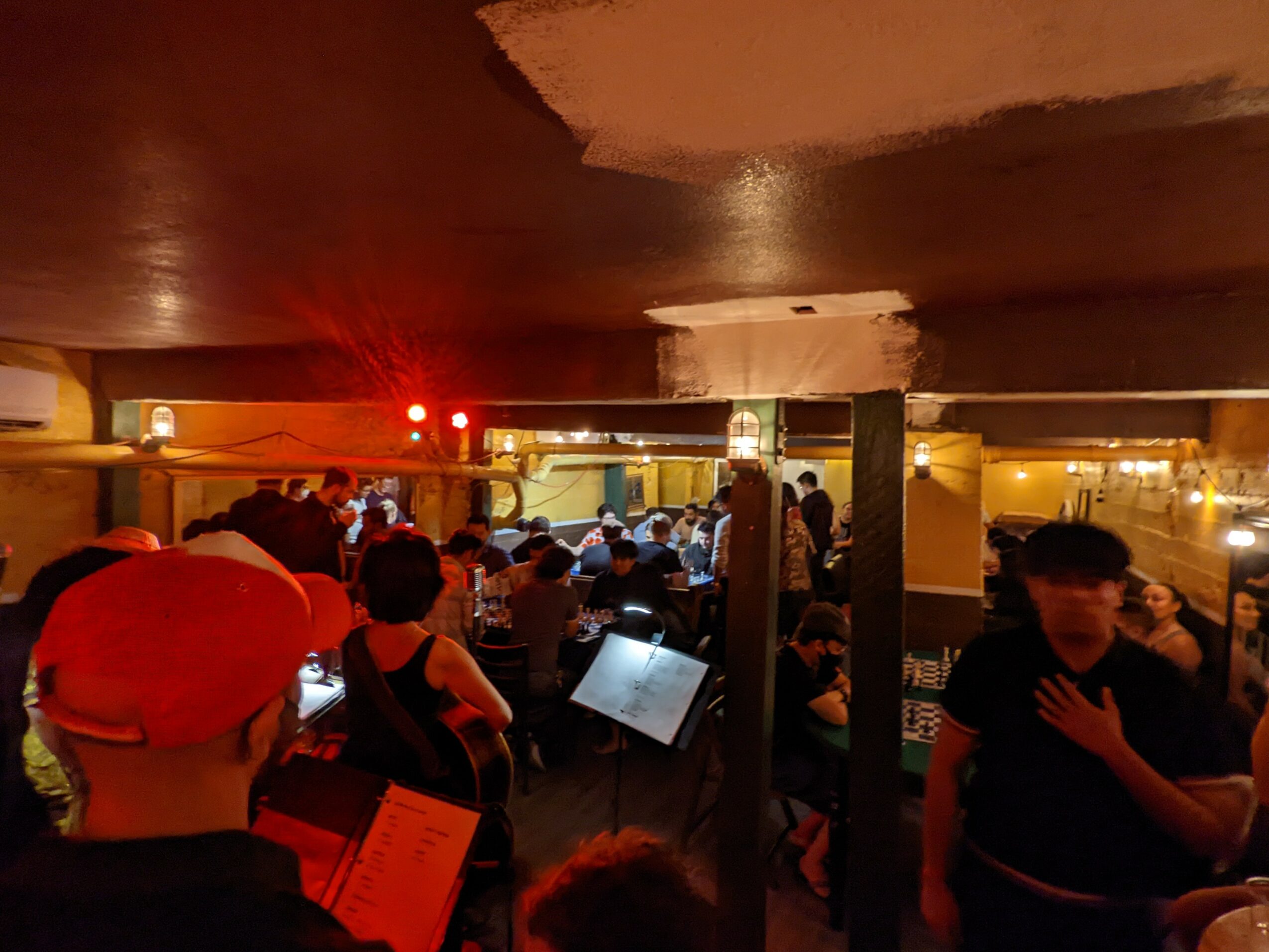

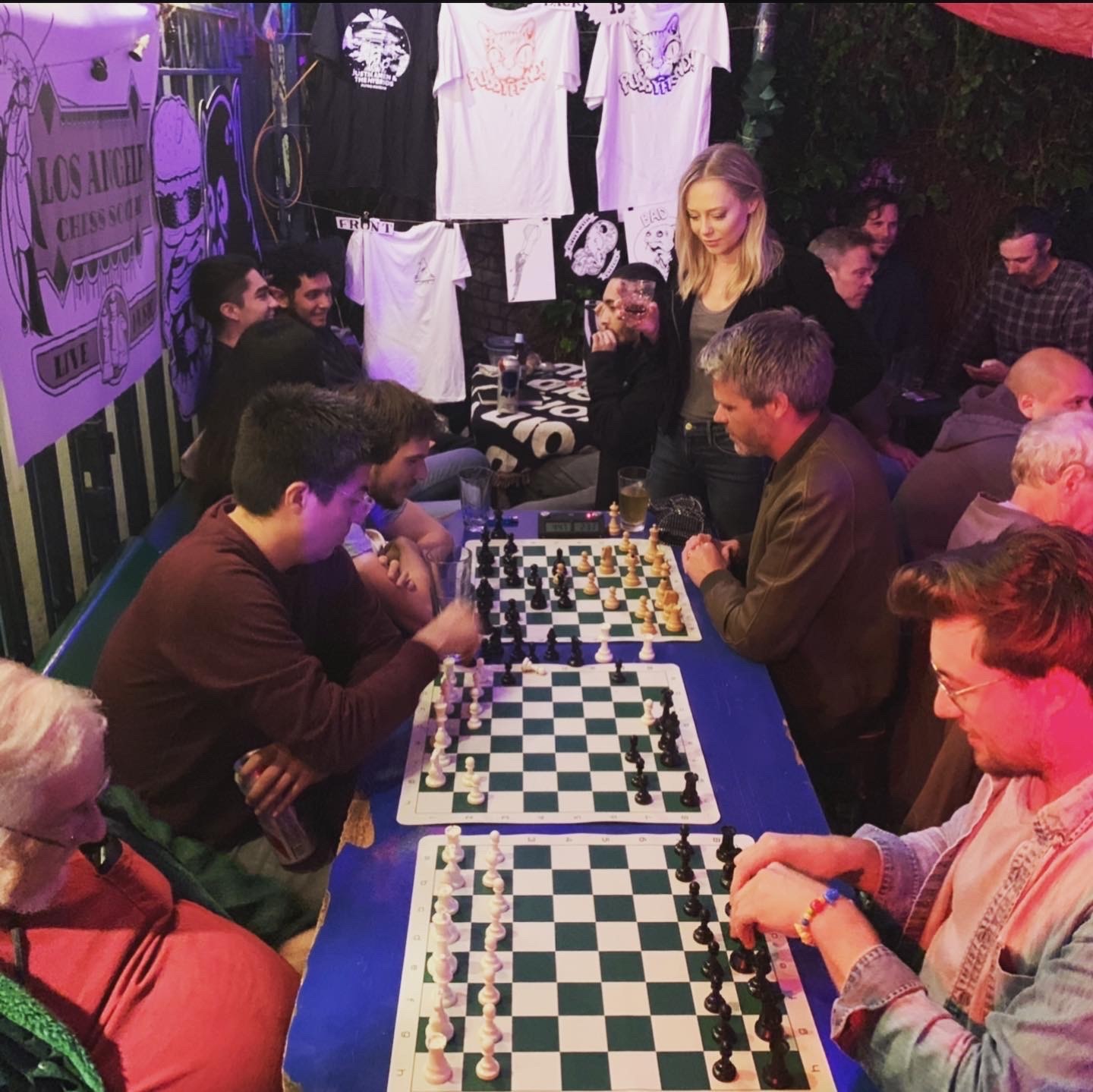

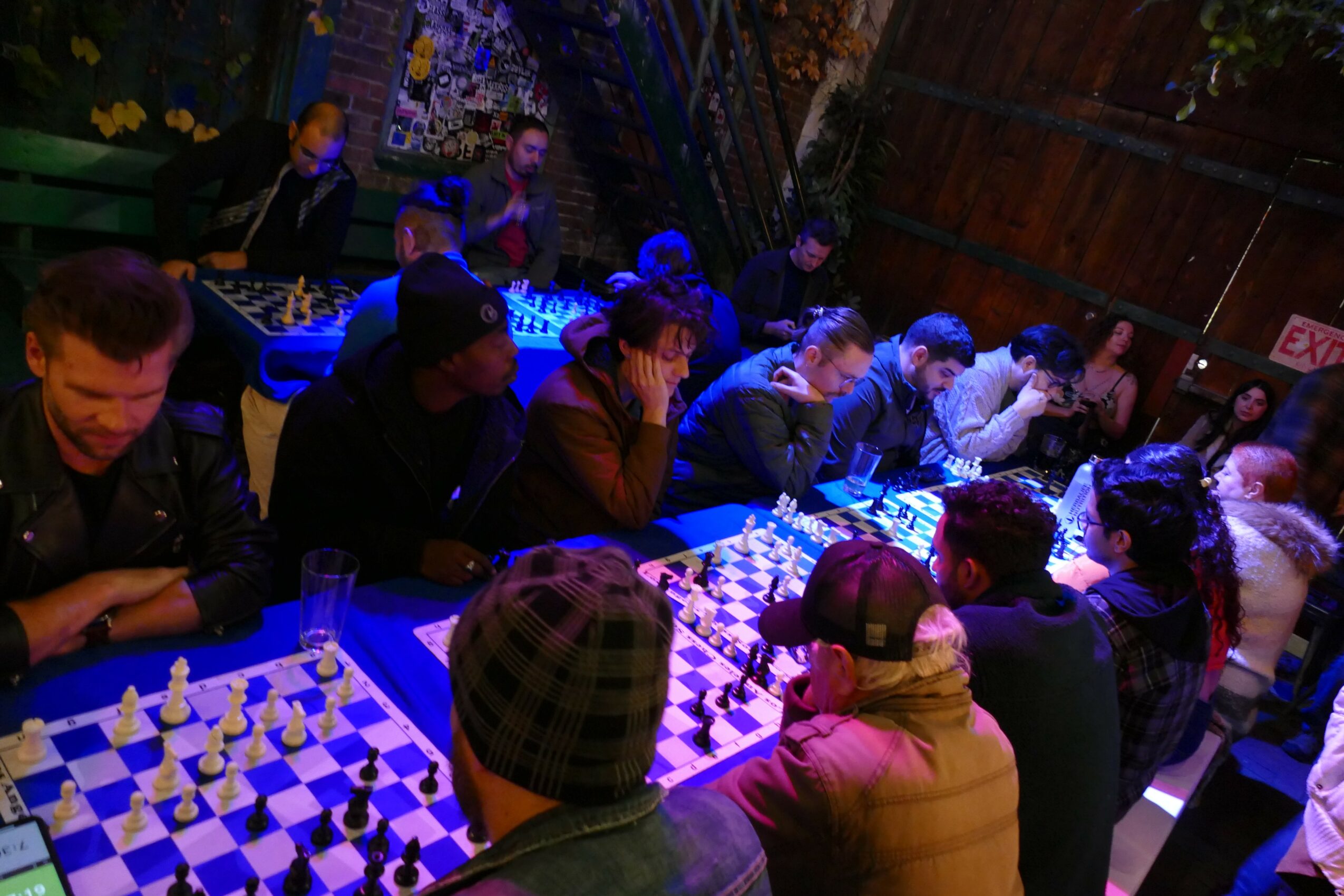
Image Credits
1) VP Jeremy Alexander 2) VP Cris Cruz 3) President/ Founder Karl Grant 4) Milind Devnani 5) Cici Xiao 6) Nick Rihn 7) Marcy Flores 8) Kris Rollert 9) Travis Sidle












